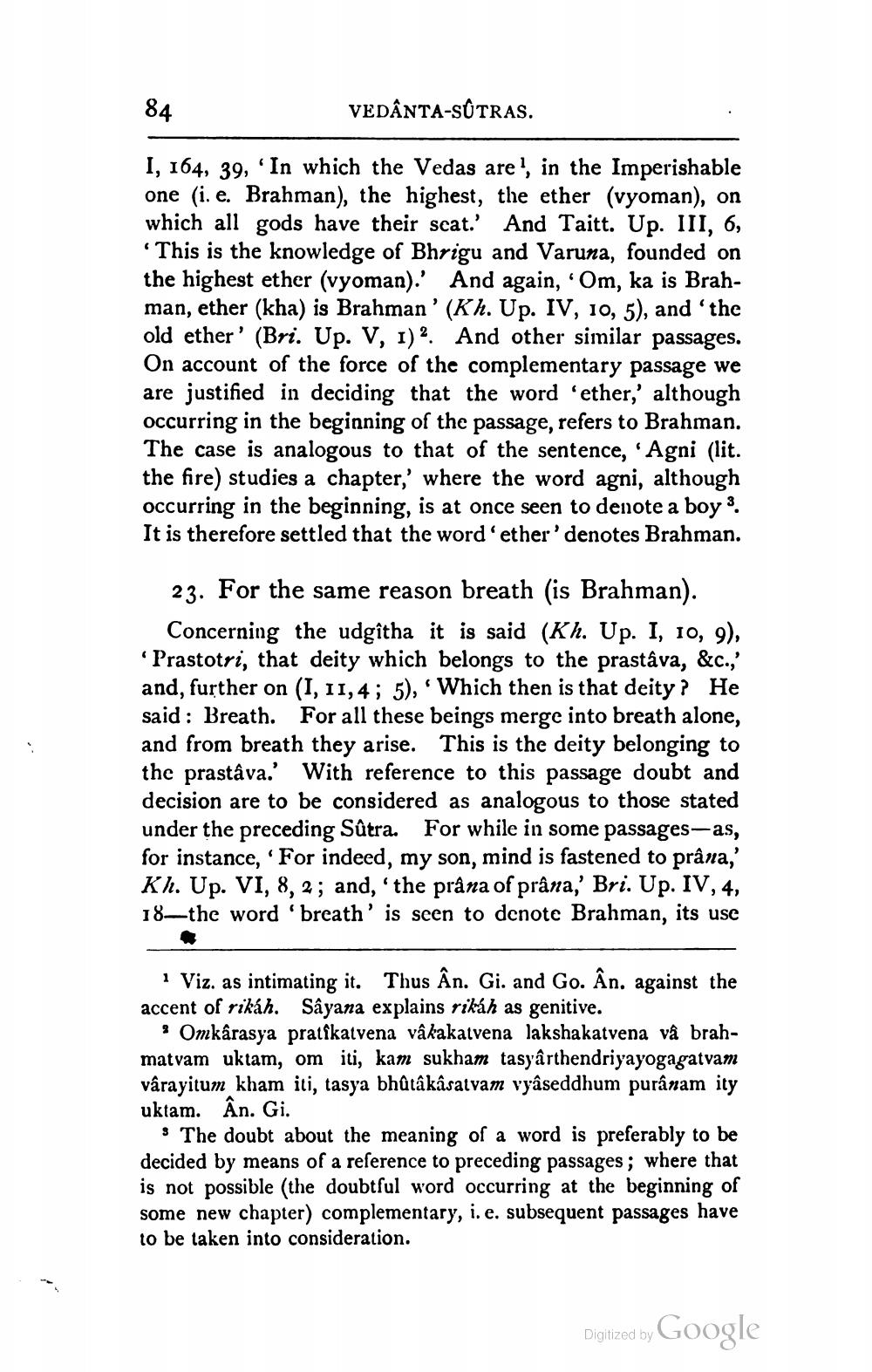________________
VEDÂNTA-SÛTRAS.
I, 164, 39, 'In which the Vedas are ?, in the Imperishable one (i. e. Brahman), the highest, the ether (vyoman), on which all gods have their scat.' And Taitt. Up. III, 6, *This is the knowledge of Bhrigu and Varuna, founded on the highest ether (vyoman).' And again, 'Om, ka is Brahman, ether (kha) is Brahman' (Kh. Up. IV, 10, 5), and 'the old ether' (Bri. Up. V, 1)?. And other similar passages. On account of the force of the complementary passage we are justified in deciding that the word 'ether,' although occurring in the beginning of the passage, refers to Brahman. The case is analogous to that of the sentence, 'Agni (lit. the fire) studies a chapter,' where the word agni, although occurring in the beginning, is at once seen to denote a boy 3. It is therefore settled that the word ether' denotes Brahman.
23. For the same reason breath (is Brahman). Concerning the udgîtha it is said (Kh. Up. I, 10, 9), Prastotri, that deity which belongs to the prastava, &c.,' and, further on (I, 11,4; 5), 'Which then is that deity ? He said : Breath. For all these beings merge into breath alone, and from breath they arise. This is the deity belonging to the prastāva. With reference to this passage doubt and decision are to be considered as analogous to those stated under the preceding Sûtra. For while in some passages—as, for instance, 'For indeed, my son, mind is fastened to prâna.' Kh. Up. VI, 8, 2; and, the prâna of prâna,' Bri. Up. IV, 4, 18-the word 'breath' is seen to denote Brahman, its use
1 Viz. as intimating it. Thus Ân. Gi. and Go. Ân. against the accent of rikáh. Sâyana explains rikáh as genitive.
3 Omkârasya pratikalvena vâkakatvena lakshakatvena và brahmatvam uktam, om iti, kam sukham tasyârthendriyayogagatvam vârayitum kham iti, tasya bhûtâkâsalvam vyâseddhum purânam ity uktam. Ân. Gi.
$ The doubt about the meaning of a word is preferably to be decided by means of a reference to preceding passages; where that is not possible (the doubtful word occurring at the beginning of some new chapter) complementary, i.e. subsequent passages have to be taken into consideration.
Digitized by
Digized by Google




